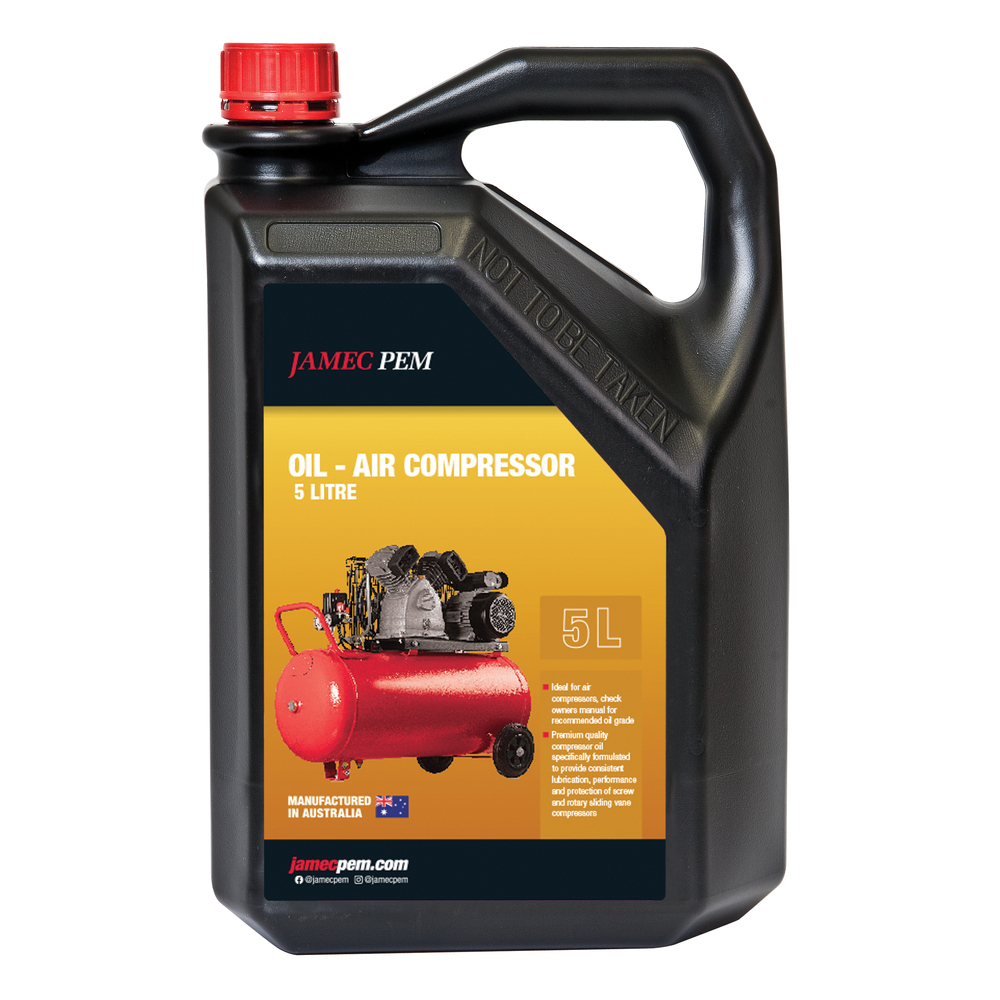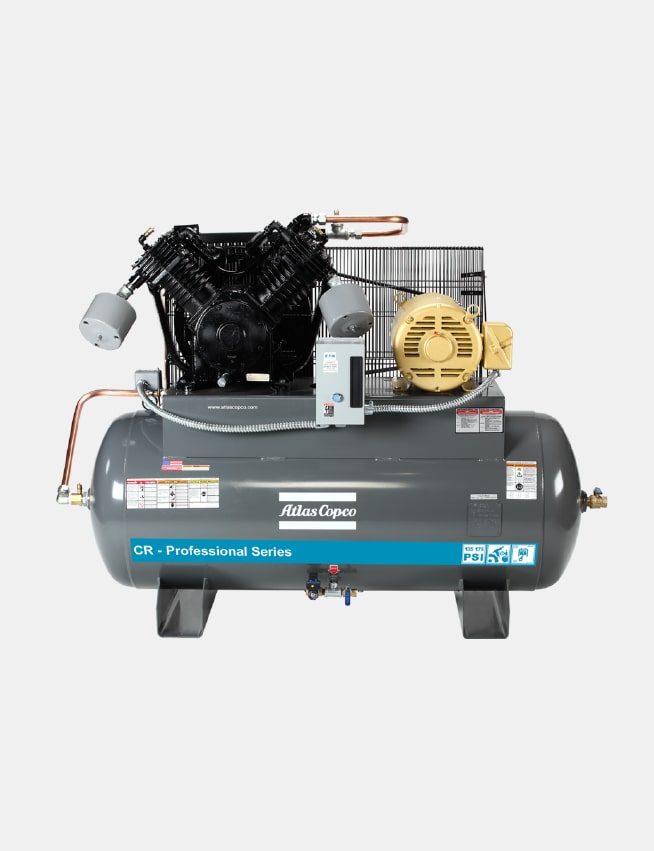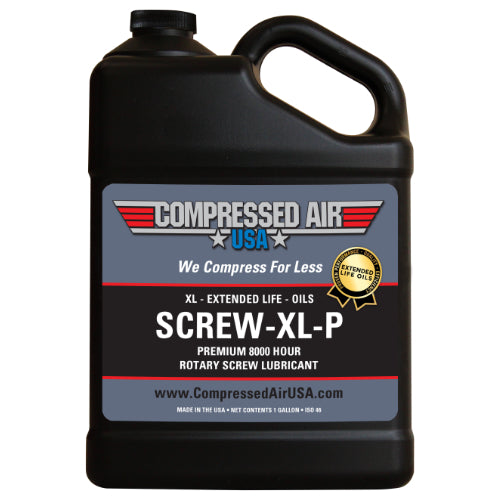Oil for air compressors serves two main purposes: lubrication and cooling. It reduces friction, extends the life of the compressor, and enhances efficiency.
Air compressors play a crucial role in various applications, from powering pneumatic tools to inflating tires. Choosing the right oil is essential for optimal performance. The oil lubricates moving parts, preventing wear and tear. It also aids in dissipating heat, ensuring the compressor operates smoothly.
Different types of compressors require specific oils. Using the wrong type can lead to decreased efficiency or even damage. Regular maintenance and oil checks are vital to keep your compressor functioning at its best. Understanding the importance of oil selection helps you maintain your equipment and achieve the best results in your projects.
Introduction To Air Compressor Lubrication
Air compressors rely on effective lubrication for optimal performance. Proper oil keeps components running smoothly. It reduces friction and prevents overheating. Understanding oil’s role helps maintain your compressor’s efficiency.
Role Of Oil In Air Compressors
Oil plays a vital role in air compressors. Here are key functions:
- Reduces Friction: Oil creates a smooth surface between moving parts.
- Cools Components: Oil absorbs heat generated during operation.
- Prevents Wear: Regular lubrication extends the life of the compressor.
- Seals Gaps: Oil helps seal gaps, improving efficiency.
Benefits Of Proper Lubrication
Using the right oil offers numerous advantages:
| Benefit | Description |
|---|---|
| Increased Efficiency | Lubricated components work better with less energy. |
| Longer Lifespan | Regular oil changes reduce wear on parts. |
| Reduced Maintenance Costs | Fewer repairs lead to lower overall expenses. |
| Better Performance | Well-lubricated compressors deliver consistent power. |
Proper lubrication is crucial for air compressor health. Choose the right oil for your model. Regularly check oil levels and replace as needed. This practice ensures your compressor runs efficiently.
Types Of Compressor Oils
Choosing the right oil for your air compressor is essential. Different types of oils offer unique benefits. Here’s a look at the three main types: Mineral Oils, Synthetic Oils, and Bio-Based Oils.
Mineral Oils
Mineral oils are traditional and widely used. They come from refining crude oil. Here are some key features:
- Cost-effective option for many users.
- Good lubrication properties.
- Can break down over time.
Mineral oils are suitable for light to moderate duty compressors. They may require more frequent changes than synthetic options.
Synthetic Oils
Synthetic oils are engineered for high performance. They offer superior lubrication and protection. Key benefits include:
- Higher temperature resistance.
- Longer service life.
- Better performance in extreme conditions.
Synthetic oils are ideal for heavy-duty compressors. They reduce wear and tear, leading to longer equipment life.
Bio-based Oils
Bio-based oils are made from renewable resources. They are environmentally friendly and biodegradable. Some important points:
- Less toxic than conventional oils.
- Good lubrication properties.
- May be more expensive than mineral oils.
Bio-based oils are great for eco-conscious users. They provide effective lubrication while being kind to the planet.
| Type of Oil | Cost | Performance | Environmental Impact |
|---|---|---|---|
| Mineral Oils | Low | Moderate | Higher |
| Synthetic Oils | High | Excellent | Moderate |
| Bio-Based Oils | Moderate | Good | Low |
Viscosity Ratings Explained
Understanding viscosity ratings is essential for selecting the right oil for your air compressor. Viscosity affects how well the oil lubricates and protects the compressor’s parts. This section breaks down viscosity ratings and their importance in air compressor maintenance.
Importance Of Viscosity
Viscosity measures a fluid’s resistance to flow. For air compressors, viscosity is crucial for several reasons:
- Lubrication: Proper viscosity ensures effective lubrication.
- Temperature Control: It helps maintain optimal operating temperatures.
- Wear Protection: Correct viscosity reduces wear on moving parts.
- Energy Efficiency: Reduces energy consumption during operation.
Choosing the wrong viscosity can lead to:
- Increased wear and tear on components.
- Higher energy costs.
- Possible overheating and damage.
Selecting The Right Viscosity
Selecting the right viscosity for your air compressor involves considering several factors:
| Factor | Recommendation |
|---|---|
| Operating Temperature | Check the manufacturer’s guidelines. |
| Compressor Type | Use oil specified for your compressor model. |
| Usage Frequency | Choose a viscosity that suits continuous or intermittent use. |
| Oil Type | Consider synthetic vs. conventional oils. |
Common viscosity ratings include:
- ISO 32: Ideal for low-temperature operations.
- ISO 46: Suitable for moderate temperatures.
- ISO 68: Best for high-temperature applications.
Always refer to the user manual. This ensures you select the right viscosity for your air compressor.

Credit: www.jamecpem.com
Synthetic Vs. Standard Oils
Choosing the right oil for your air compressor is crucial. Two main types are available: synthetic and standard oils. Understanding their differences helps you make an informed choice.
Performance Comparison
Synthetic oils outperform standard oils in many ways:
- Better lubrication at high temperatures
- Improved resistance to oxidation
- Longer service life
- Enhanced performance in extreme conditions
Standard oils are effective but may break down faster. This can lead to:
- Increased wear and tear
- Shorter intervals between oil changes
| Feature | Synthetic Oil | Standard Oil |
|---|---|---|
| Temperature Range | High | Medium |
| Oxidation Resistance | Excellent | Good |
| Change Interval | Longer | Shorter |
Cost-benefit Analysis
Price differences exist between synthetic and standard oils. Here’s a quick breakdown:
- Synthetic Oils
- Higher initial cost
- Longer lifespan
- Less frequent changes
- Standard Oils
- Lower initial cost
- Frequent changes required
- Higher long-term expenses
Investing in synthetic oil can save money over time. The longer intervals and better performance justify the higher price.
Oil Change Intervals
Regular oil changes are vital for your air compressor’s health. The right frequency helps maintain performance. It also extends the lifespan of your equipment.
Determining Optimal Change Frequency
Finding the best oil change schedule depends on several factors:
- Usage Hours: Track how often you use the compressor.
- Operating Conditions: Dusty or humid environments may require more frequent changes.
- Manufacturer Guidelines: Always refer to the owner’s manual.
- Oil Type: Synthetic oils can last longer than conventional oils.
Here’s a simple table to guide you:
| Usage Condition | Change Interval |
|---|---|
| Light Use | Every 100 hours |
| Moderate Use | Every 50 hours |
| Heavy Use | Every 25 hours |
Signs Your Oil Needs Changing
Watch for these signs to know when to change your oil:
- Color Change: Dark or cloudy oil indicates contamination.
- Unusual Noise: Increased noise may signal oil breakdown.
- Reduced Performance: Poor performance often means old oil.
- Oil Smell: A burnt smell can indicate overheating.
Stay vigilant. Regular checks can prevent major issues.
Effects Of Oil On Air Quality
Oil plays a crucial role in air compressors. It affects the air quality produced by these machines. Understanding the impact of oil is essential for optimal performance. This section explores how oil influences air quality.
Oil-injected Vs. Oil-free Systems
Oil-injected systems use oil to lubricate components. This oil can mix with the compressed air, leading to contamination.
- Oil-injected Systems:
- Higher efficiency in cooling and lubrication.
- Can release oil vapor into the air.
- May require oil separator filters to minimize contamination.
- Oil-free Systems:
- No oil in the compressed air.
- Better for sensitive applications, like food or medical.
- Lower maintenance costs due to fewer components.
Impact On Pneumatic Tools And Processes
Oil quality directly affects pneumatic tools. Clean air ensures better performance and longevity.
| Aspect | Oil-injected Systems | Oil-free Systems |
|---|---|---|
| Air Quality | May contain oil particles | Free of oil contamination |
| Pneumatic Tool Performance | May degrade with oil exposure | Consistent performance |
| Maintenance | Requires regular oil checks | Less frequent maintenance needed |
Choosing the right system impacts air quality. Clean air leads to efficient operations. It extends the life of tools and machinery.
Troubleshooting Common Oil Issues
Oil is crucial for your air compressor’s performance. Issues can arise over time. Identifying and fixing these problems is essential. This section covers two common oil issues.
Leaks And Contamination
Leaks can reduce oil levels quickly. They lead to poor lubrication and damage. Common causes include:
- Worn seals
- Loose fittings
- Damaged hoses
To fix leaks:
- Inspect all seals and gaskets.
- Tighten any loose fittings.
- Replace damaged hoses.
Contamination is another issue. Dirt and water can mix with the oil. This reduces its effectiveness. Check for signs of contamination:
- Cloudy oil appearance
- Sludge formation
- Unusual smells
To prevent contamination:
- Change oil regularly.
- Use high-quality oil.
- Keep the compressor clean.
Overheating Due To Improper Lubrication
Overheating often occurs with low oil levels. This can damage parts. Proper lubrication is crucial for cooling. Signs of overheating include:
- Excessive heat on the compressor body
- Strange noises
- Frequent shutdowns
To prevent overheating:
- Check oil levels regularly.
- Use the right type of oil.
- Ensure proper oil circulation.
Consider a cooling system upgrade if overheating persists. Maintaining optimal oil levels ensures a longer compressor life.

Credit: www.aavsales.com
Best Practices For Oil Management
Proper oil management extends the life of your air compressor. Following best practices ensures optimal performance and reduces costs. Here are key aspects to consider.
Storage And Handling
Proper oil storage is crucial for quality. Follow these steps:
- Store oil in a cool, dry place.
- Use original containers to avoid contamination.
- Keep containers tightly sealed.
- Avoid direct sunlight exposure.
Handling oil requires care. Always:
- Use clean tools to prevent dirt entry.
- Check for leaks before moving containers.
- Label containers clearly with dates and types.
Monitoring And Maintenance
Regular monitoring keeps your air compressor running smoothly. Follow these tips:
| Task | Frequency |
|---|---|
| Check oil level | Weekly |
| Change oil | Every 500 hours of use |
| Inspect for leaks | Monthly |
| Clean air filter | Every 3 months |
Maintain oil quality by checking for:
- Cloudiness or discoloration
- Metal particles or debris
Always dispose of used oil properly. Follow local regulations for disposal.
Environmental Considerations
Choosing the right oil for your air compressor affects the environment. Understanding how to manage used oil is crucial. Eco-friendly alternatives can help reduce pollution.
Disposal Of Used Compressor Oil
Proper disposal of used compressor oil is essential. Improper disposal can harm soil and water. Follow these steps for safe disposal:
- Check local regulations: Laws vary by location.
- Use a designated collection center: Many areas offer drop-off sites.
- Never pour oil down the drain: This contaminates water sources.
- Recycle oil: Some facilities recycle it into new products.
Storing used oil in a sealed container prevents leaks. Always label the container clearly.
Eco-friendly Oil Alternatives
Several eco-friendly oil options exist for air compressors. These oils reduce environmental impact and enhance performance. Consider the following alternatives:
- Synthetic oils: They last longer and reduce emissions.
- Biodegradable oils: Made from natural sources, they break down easily.
- Vegetable-based oils: Safe for the environment and effective in compressors.
Choosing eco-friendly oils can help protect our planet. Always check product labels for eco-certifications.

Credit: compressedairusa.com
Future Trends In Compressor Lubrication
The future of compressor lubrication is bright and innovative. New technologies are emerging. These advancements aim to improve efficiency and reduce environmental impact. The focus is on sustainability and performance.
Advancements In Oil Technology
New oil technologies are changing how compressors function. Here are key advancements:
- Synthetic Oils: These oils offer better performance and longevity.
- Biodegradable Options: Eco-friendly oils are gaining popularity.
- Smart Lubrication Systems: These systems monitor oil health in real time.
These advancements lead to:
- Longer equipment life.
- Lower maintenance costs.
- Improved energy efficiency.
Impact Of Regulations On Oil Formulations
Regulations shape the future of compressor oils. New rules focus on reducing emissions. Manufacturers must adapt their oil formulations. Here are some effects:
| Regulation | Impact on Oil |
|---|---|
| Low Emission Standards | Encourages development of cleaner oils. |
| Environmental Protection Laws | Promotes biodegradable oil options. |
| Energy Efficiency Guidelines | Drives innovation in high-performance oils. |
These regulations lead to safer and greener lubricant options. Companies are investing in research and development. The goal is to meet future demands.
Frequently Asked Questions
What Type Of Oil Is Best For Air Compressors?
The best oil for air compressors is typically a synthetic or non-detergent oil. These oils provide excellent lubrication and reduce wear. They also withstand high temperatures, ensuring optimal performance. Always check your compressor’s manual for the recommended oil type to maintain efficiency and longevity.
How Often Should I Change Air Compressor Oil?
You should change your air compressor oil every 300 to 500 hours of operation. Regular oil changes help maintain optimal performance and extend the life of your compressor. Check the manufacturer’s recommendations for specific intervals. Keeping an eye on oil levels and condition is essential for efficient operation.
Can I Use Regular Motor Oil In My Compressor?
Using regular motor oil in your compressor is not recommended. Motor oils contain additives that can harm the compressor’s internal components. Instead, opt for oils specifically designed for air compressors. These specialized oils offer better lubrication and protection against wear and tear.
Is Synthetic Oil Better For Air Compressors?
Yes, synthetic oil is generally better for air compressors. It offers superior lubrication and can withstand higher temperatures than conventional oils. This helps reduce wear and increases the lifespan of your compressor. Furthermore, synthetic oils often result in improved efficiency and reduced maintenance needs.
Conclusion
Choosing the right oil for your air compressor is crucial for optimal performance. Proper lubrication extends the life of your equipment and enhances efficiency. Always follow manufacturer recommendations for oil type and change intervals. Investing time in maintenance pays off with reliable, long-lasting air compressor operation.
Keep your compressor running smoothly for years.

